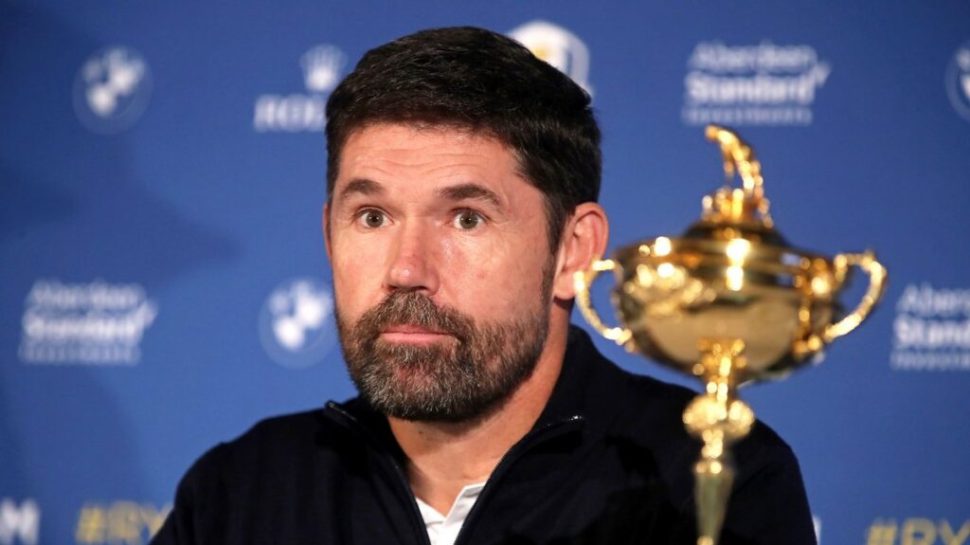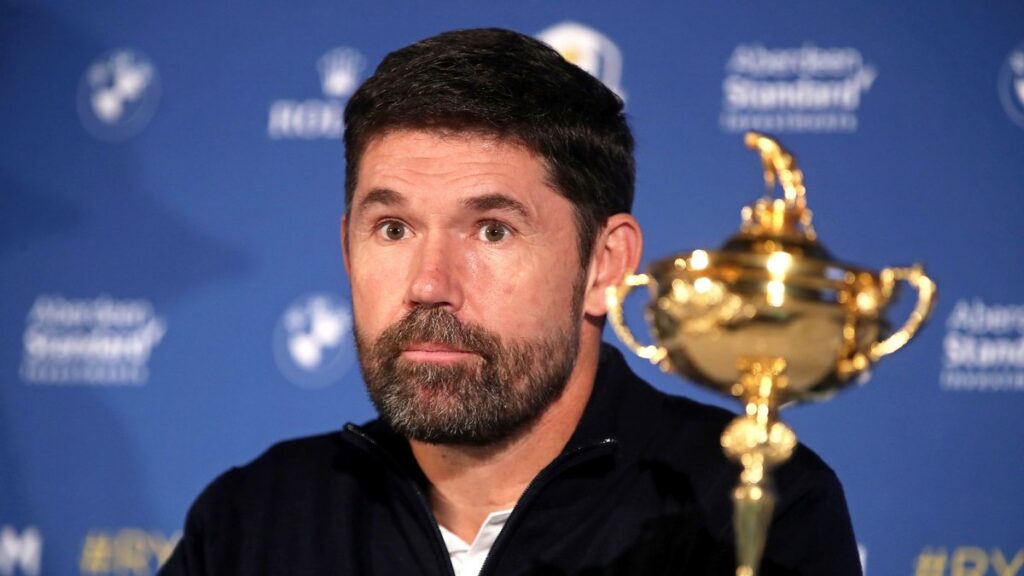
Estimated reading time: 5 minutes
The United States won the Ryder Cup at Whistling Straits last weekend by a record margin of 19 points to 9. It could have been worse. If Lee Westwood, at 48 the oldest man among the 24 competitors, had not won three of the last four holes against Harris English to edge to a 1-up victory, the US would have become the first team to get to 20. By the time we get to Rome for the 2023 match, at this range Westwood looks the man most likely to be succeeding Padraig Harrington as Europe’s non-playing captain. “I assume I’ll get three or four months to think about it,” Westwood said after the match. “Being Ryder Cup captain is a massive honour.”
In the immediate aftermath of the ‘Slaughter on the Water’, the words ‘succeeding’ and ‘Padraig Harrington’ seemed unlikely sentence-fellows. It always seemed odd that he was happy to stick to three wild cards whereas his American counterpart, Steve Stricker, used the pandemic as a reason to get six picks. And having made his selections, two of them, Shane Lowry and Ian Poulter, were only fielded twice by Harrington before the singles. In hindsight, Justin Rose should have been picked but he was the only player ahead of Poulter in the world rankings who was omitted. (Rose was immediately behind Lowry and Sergio Garcia.)
See you in Rome 🇮🇹#TeamEurope #RyderCup pic.twitter.com/1Li0SEBnUm
— Ryder Cup Europe (@RyderCupEurope) September 29, 2021
I don’t think too many people were ramping up the picking of Victor Perez, Robert Macintyre or Alex Noren, the three players who were below Poulter but ahead of Bernd Wiesberger, who qualified for the team at the final counting event, the BMW PGA Championship, by overtaking Lowry on the qualification system despite finishing behind him in that tournament. To state the obvious, the system needs changing. As does having the PGA as the last counting event. Westwood again. “Some of the guys turning up here don’t need this two weeks before a Ryder Cup,” he told James Corrigan of the Daily Telegraph. “It is going to be draining and you want to be going into the Ryder Cup fresh.” And why were Lowry and Tommy Fleetwood never picked for the foursomes? But that’s the thing about the captaincy. Win, and you’re a genius. Lose, and you’re…well, a loser. And the fact is that the Americans had a far stronger team and one which absolutely played to its many strengths.
Viktor Hovland, Lowry and Wiesberger became the 162nd, 163rd and 164th players to represent Europe in the Ryder Cup (going back to when it was just Great Britain in 1927). Who will become Nos. 165, 166 and 167? Perhaps the exciting young Danish twins, Nicolai and Rasmus Hojgaard, both winners on the European Tour this season? Or Guido Migliozzi, who finished fourth at the US Open? Maybe a comparatively veteran Italian, the 2018 Open champion, Francesco Molinari, who earned five points from five at the previous match in Paris, will find a return to form. It may be a match too far for the record-setting Garcia but not for his outstanding partner, the world No. 1, Jon Rahm.
Of course, things will in any case be different at the Marco Simone Golf & Country Club in two years time, the course being one of the things to be different, being set up by the European captain in a way to suit his players just as Stricker had Whistling Straits set up to cater for his multitude of bombers and fast-green experts. Oh, it may also be worth mentioning that whereas in Wisconsin there were almost no European fans, in Rome there will be some. And not just some; a vast majority.
We agree, @McIlroyRory 👏👏 pic.twitter.com/HECiRvhH4o
— Ryder Cup (@rydercup) September 30, 2021
For professional golfers, every hole of a Ryder Cup match is like playing the back nine of a major championship on Sunday while in contention. In the opinion of many sports journalists, not only those who specialise in writing about golf, the Ryder Cup is the best sports event in the world. It’s passionate, it’s a team contest, and it takes place over a tension-filled three days rather than, say like the World Cup, being bloated out to five weeks and containing a number of matches which mean nothing.
It is a marvellous occasion. But to remain marvellous, it needs to be a compelling sporting spectacle. Europe has won seven of the 10 matches since the turn of the century. What happened at Whistling Straits means those who feared the Americans would get bored if they kept on losing have had that concern assuaged. Now, of course, they will live in fear of the US getting bored with recurring blow-outs. I would be confident that in Rome in 2023 that will also prove to be a groundless worry.
You can follow Robert Green on Twitter @robrtgreen and enjoy his other blog f-factors.com plus you can read more by him on golf at robertgreengolf.com
